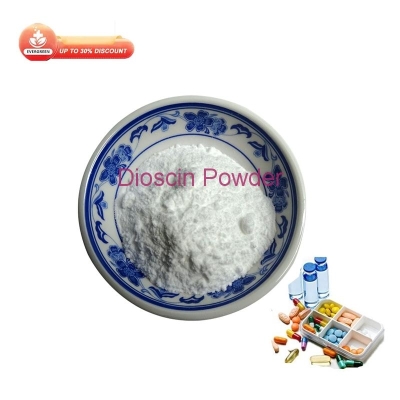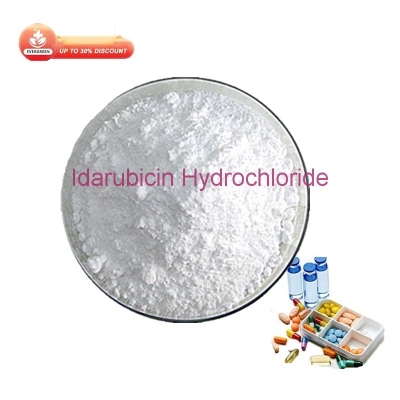-
Categories
-
Pharmaceutical Intermediates
-
Active Pharmaceutical Ingredients
-
Food Additives
- Industrial Coatings
- Agrochemicals
- Dyes and Pigments
- Surfactant
- Flavors and Fragrances
- Chemical Reagents
- Catalyst and Auxiliary
- Natural Products
- Inorganic Chemistry
-
Organic Chemistry
-
Biochemical Engineering
- Analytical Chemistry
- Cosmetic Ingredient
-
Pharmaceutical Intermediates
Promotion
ECHEMI Mall
Wholesale
Weekly Price
Exhibition
News
-
Trade Service
In August 2021, based on the results of the CheckMate-649 study, navuliyuzumab (trade name: Odivo ®) became the first PD-1 inhibitor
The seventh issue of the column "Stomach to Present the Front" specially invited Professor Wei Jia of the Affiliated Drum Tower Hospital of Nanjing University School of Medicine to take a detailed inventory of the research progress
A tumor genome biomarker
1.
2.
3.
Two PD-L1 expressions
Several large randomized controlled trials demonstrated the potential use of PD-L1 expression as a predictive biomarker5,6
Three blood biomarkers
1.
2.
Liquid biopsy biomarkers: Circulating tumor DNA (ctDNA) can not only predict the response before treatment, but real-time monitoring of ctDNA after treatment can also predict the response to
immunotherapy.
TME is a complex tumor ecosystem that supports tumor growth and metastasis spread¹⁰, but also reflects the tumor's response to immunotherapy, and the various types of cells or cytokines in TME are an important part
of the effect of immunotherapy.
ICI therapy interferes with normal immune tolerance and triggers immune activation in normal tissues, leading to various immune-related adverse events (irAE).
Notably, irAEs usually indicate a good response
to ICI treatment.
In a retrospective study in Japan, navulisizumab was used in 65 patients with advanced gastric cancer, and the results showed significant improvements in median progression-free survival (PFS) and median overall survival (OS) in patients with irAE compared with patients without irAE (PFS: 7.
5 months vs 1.
4 months; OS: 16.
8 months vs 3.
2 months) ¹¹
.
The relationship between the efficacy of irAEs and ICI may be attributed to the presence of similar antigens¹² in tumor cells and other normal tissues
.
When the immune system is activated, it targets not only tumor cells, but also non-tumor sites
.
However, not all irAEs suggest that immunotherapy works better, such as immune-associated pneumonia and myocarditis, and can be fatal
.
Figure 1: Predictive power of irAEs on ICI efficacy
Six patient-related biomarkersPatient-related biomarkers include sex, body mass index (BMI), Epstein-Barr virus (EBV), gut microbiome biomarkers, non-alcoholic steatohepatitis (NASH), Helicobacter pylori, etc.
, which are also associated
with ICI treatment and prognosis.
Among them, EBV-associated gastric cancer (EBVaGC) is considered a separate gastric cancer subtype, about 8%–10% of stomach cancers are associated with EBV infection, and EBVaGC patients have a better prognosis than other genotypes
¹³.
In summary, on the road to precision immunotherapy, looking for biomarkers to guide drug use is an inevitable choice
.
However, a single ICI predictor is often limited, especially for highly heterogeneous gastrointestinal tumors
.
Therefore, we often need to combine a variety of factors to make comprehensive judgments, which is also our pursuit
of further realization of personalized precision immunotherapy.
Expert summary
1.
Predictive biomarkers of gastrointestinal tumor immunotherapy include tumor genomic biomarkers, PD-L1 expression, blood biomarkers, tumor microenvironment, immune-related adverse events and patient-related biomarkers
.
2.
In gastrointestinal tumors, the prediction index of a single immune checkpoint inhibitor is often limited, and the establishment of a dynamic personalized prediction model based on multiple biomarkers is the direction
of future research.
References:
1.
Jingting Wang, Xiao Ma, Zhongjun Ma, et al.
Research Progress of Biomarkers for Immune Checkpoint Inhibitors on Digestive System Cancers.
Frontiers in Immunology.
2022 Apr 13; 13:810539.
2.
McGrail DJ, Pilié PG, Rashid NU, Voorwerk L, Slagter M, Kok M, et al.
High Tumor Mutation Burden Fails to Predict Immune Checkpoint Blockade Response Across All Cancer Types.
Ann Oncol (2021) 32(5):661–72.
3.
Wang F, Zhao Q, Wang YN, Jin Y, He MM, Liu ZX, et al.
Evaluation of POLE and POLD1 Mutations as Biomarkers for Immunotherapy Outcomes Across Multiple Cancer Types.
JAMA Oncol (2019) 5(10):1504–6.
4.
Hu G, Tu W, Yang L, Peng G, Yang L.
ARID1A Deficiency and Immune Checkpoint Blockade Therapy: From Mechanisms to Clinical Application.
Cancer Lett (2020) 473:148–55.
5.
Fuchs CS, Doi T, Jang RW, Muro K, Satoh T, Machado M, et al.
Safety and Efficacy of Pembrolizumab Monotherapy in Patients With Previously Treated Advanced Gastric and Gastroesophageal Junction Cancer: Phase 2 Clinical KEYNOTE-059 Trial.
JAMA Oncol (2018) 4(5):e180013.
6.
Shitara K, Van Cutsem E, Bang YJ, Fuchs C, Wyrwicz L, Lee KW, et al.
Efficacy and Safety of Pembrolizumab or Pembrolizumab Plus Chemotherapy vs Chemotherapy Alone for Patients With First-Line, Advanced Gastric Cancer: The KEYNOTE-062 Phase 3 Randomized Clinical Trial.
JAMA Oncol (2020) 6(10):1571–80.
7.
Mansfield AS, Murphy SJ, Peikert T, Yi ES, Vasmatzis G, Wigle DA, et al.
Heterogeneity of Programmed Cell Death Ligand 1 Expression in Multifocal Lung Cancer.
Clin Cancer Res (2016) 22(9):2177–82.
8.
Yamashita K, Iwatsuki M, Harada K, Eto K, Hiyoshi Y, Ishimoto T, et al.
Prognostic Impacts of the Combined Positive Score and the Tumor Proportion Score for Programmed Death Ligand-1 Expression by Double Immunohistochemical Staining in Patients With Advanced Gastric Cancer.
Gastric Cancer (2020) 23(1):95–104.
9.
Namikawa T, Yokota K, Tanioka N, Fukudome I, Iwabu J, Munekage M, et al.
Systemic Inflammatory Response and Nutritional Biomarkers as Predictors of Nivolumab Efficacy for Gastric Cancer.
Surg Today (2020) 50(11):1486–95.
10.
Chen YP, Zhang Y, Lv JW, Li YQ, Wang YQ, He QM, et al.
Genomic Analysis of Tumor Microenvironment Immune Types Across 14 Solid Cancer Types: Immunotherapeutic Implications.
Theranostics (2017) 7(14):3585–94.
11.
Masuda K, Shoji H, Nagashima K, Yamamoto S, Ishikawa M, Imazeki H, et al.
Correlation Between Immune-Related Adverse Events and Prognosis in Patients With Gastric Cancer Treated With Nivolumab.
BMC Cancer.
2019 Oct 21; 19(1):974.
12.
Berner F, Bomze D, Diem S, Ali OH, Fässler M, Ring S, et al.
Association of Checkpoint Inhibitor-Induced Toxic Effects With Shared Cancer and Tissue Antigens in Non-Small Cell Lung Cancer.
JAMA Oncol (2019) 5(7):1043–7.
13.
Okabe A, Huang KK, Matsusaka K, Fukuyo M, Xing M, Ong X, et al.
CrossSpecies Chromatin Interactions Drive Transcriptional Rewiring in EpsteinBarr Virus-Positive Gastric Adenocarcinoma.
Nat Genet (2020) 52(9):919–30.
Professor Wei Jia
Chief Physician of Drum Tower Hospital Affiliated to Nanjing University School of Medicine, Professor, Doctoral Supervisor
Deputy Director of the Oncology Medical Center of Gulou Hospital Affiliated to Nanjing University School of Medicine
Deputy Director of the Institute of Clinical Oncology, Nanjing University
Vice Chairman of the Youth Committee of the Integrative Oncology Branch of the Chinese Anti-Cancer Association
He is a member of the China Young Science and Technology Workers Association
Standing Director of youth council of China Anti-Cancer Association
Standing Committee Member of the Young Expert Committee of the Chinese Society of Clinical Oncology (CSCO).
Vice Chairman of the Youth Committee of the Cancer Chemotherapy and Biological Therapy Branch of Jiangsu Medical Association
Young scholar of the "Yangtze River Scholar Award Program" of the Ministry of Education, chief scientist of the Ministry of Science and Technology Major Science and Technology Project, Harvard Medical School/Massachusetts General Hospital/Dana-Farber Cancer Center fellow, Chinese young oncology scientist, Chinese Youth May Fourth Medal, Wu Mengchao Youth Medical Fund Award, Jiangsu Province Youth May Fourth Medal, Jiangsu Outstanding Youth Fund Winner, Jiangsu Provincial Key Medical Talents
.
His research direction is personalized targeting/immunotherapy for malignant tumors, and he has presided over 1 major scientific and technological project of "major new drug creation" of the Ministry of Science and Technology and 4 national natural science foundations
of China.
The results were published in 73 SCI articles in internationally renowned journals such as J Natl Cancer Inst, J Clin Invest, Ann Oncol, Nat Commun, Angew Chem Int Ed Engl and other internationally renowned journals
.
Member of the editorial board of BMC Cancer, Translational Cancer Research, Frontiers in Oncology and other SCI magazines; He is the chief editor of two English monographs on personalized oncology treatment and two Chinese books
.
The related research has won one national invention patent, and 13 provincial and ministerial awards such as the Science and Technology Progress Award of the Ministry of Education, the Chinese Medical Science and Technology Award, and the Jiangsu Science and Technology Progress Award
.
1506-CN-2202622
EDIT: Dreams
Reviewer: Dreams
Typography: Wanderer
Execution: Small garden
END






